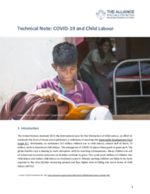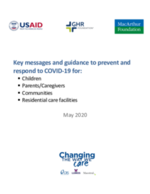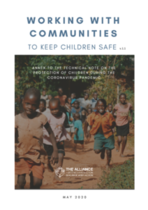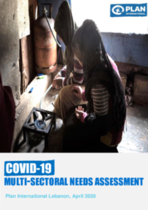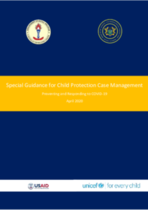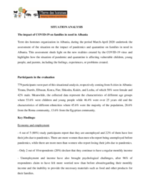“Barriers to” and “Recommendations for” Providing Care and Support for Children Living as AIDS Orphans in Township Communities in the Eastern Cape South Africa; A Cluster Analysis
This study used empirical data from health and social care professionals and cluster analysis to identify “barriers to” and “recommendations for” providing care and support to children living as AIDS orphans in township communities in Nelson Mandela Bay South Africa.

